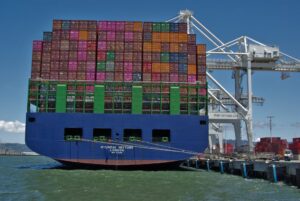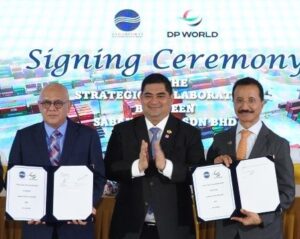The Federation of European Private Port Companies and Terminals (FEPORT), the organization that represents the interests of a large variety of EU terminal operators and stevedoring companies, has encouraged the container terminal industry to prepare for the fourth industrial revolution after establishing a Terminal Industry Committee 4.0 (TIC 4.0).
During a meeting with 15 global private container terminal operators and port equipment manufacturers in Brussels at FEPORT’s premises on May 30, 2018, the parties discussed how the industry needed to develop industry standards that will favour technological innovations such as the Internet of Things and artificial intelligence.
While working with the Port Equipment Manufacturers Association (PEMA) — the voice for the global port equipment and technology sectors, FEPORT will carry out the first objective of TIC 4.0 by defining the definitions for concepts and technical terminology that are specific to the container handling industry.
FEPORT has found that most of the terminology currently used in the sector “remains subjective”.
Read a Port Technology technical paper about how the ports of tomorrow will form smart links in supply chains by Wolfgang Lehmacher, World Economic Forum
This first step will facilitate comparatives about technical specifications for equipment, bring about objective measures of performance of equipment and constitute an important milestone towards the elaboration of standards for the industry to achieve further efficiencies.
Frank Kho, an independent professional with decades of experience in both container terminal and port equipment manufacturers industries, will supervise and coordinate the meetings.
In a statement, FEPORT said: “Both private terminal operators, members of FEPORT and port equipment manufacturers believe that proactivity is key in order to better deliver technical solutions that will warrant continuous innovation to the benefit of the overall container terminal industry, and ultimately to final consumers, under safe, sustainable and efficient conditions.
“Participants have decided that TIC 4.0 will be composed of subgroups initially dealing with safety, the performance of equipment, telemetric, energy, environment and procurement related definitions as the first step towards standards definitions.”
Read more:
-
Microsoft is utilizing technology from submarines and working with cutting-edge marine energy providers to develop self-sufficient data centres that can be deployed under the sea
-
The CMA CGM Group has made progress in the field of artificial intelligence for maritime transportation after beginning a collaboration with San Francisco-based startup Shone










